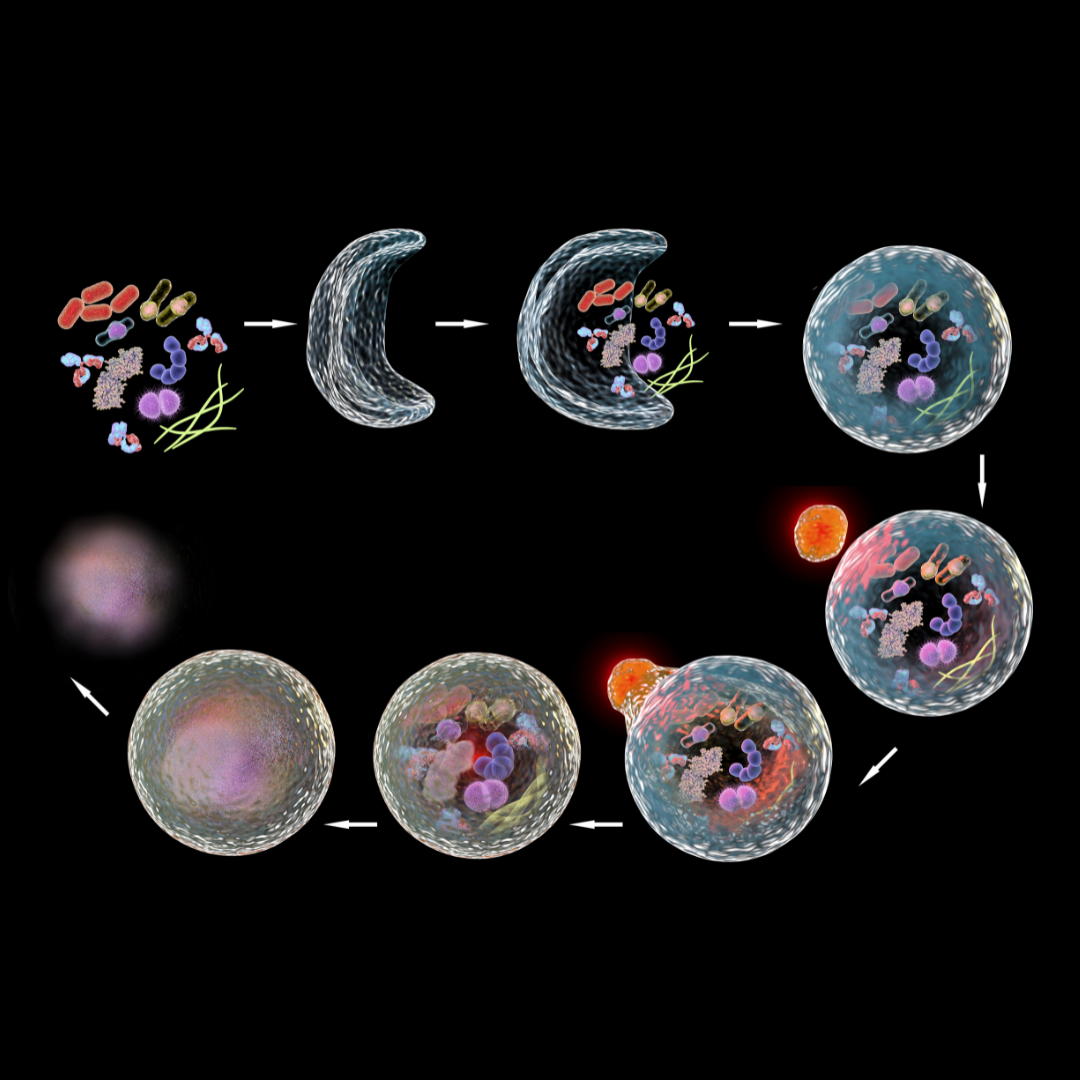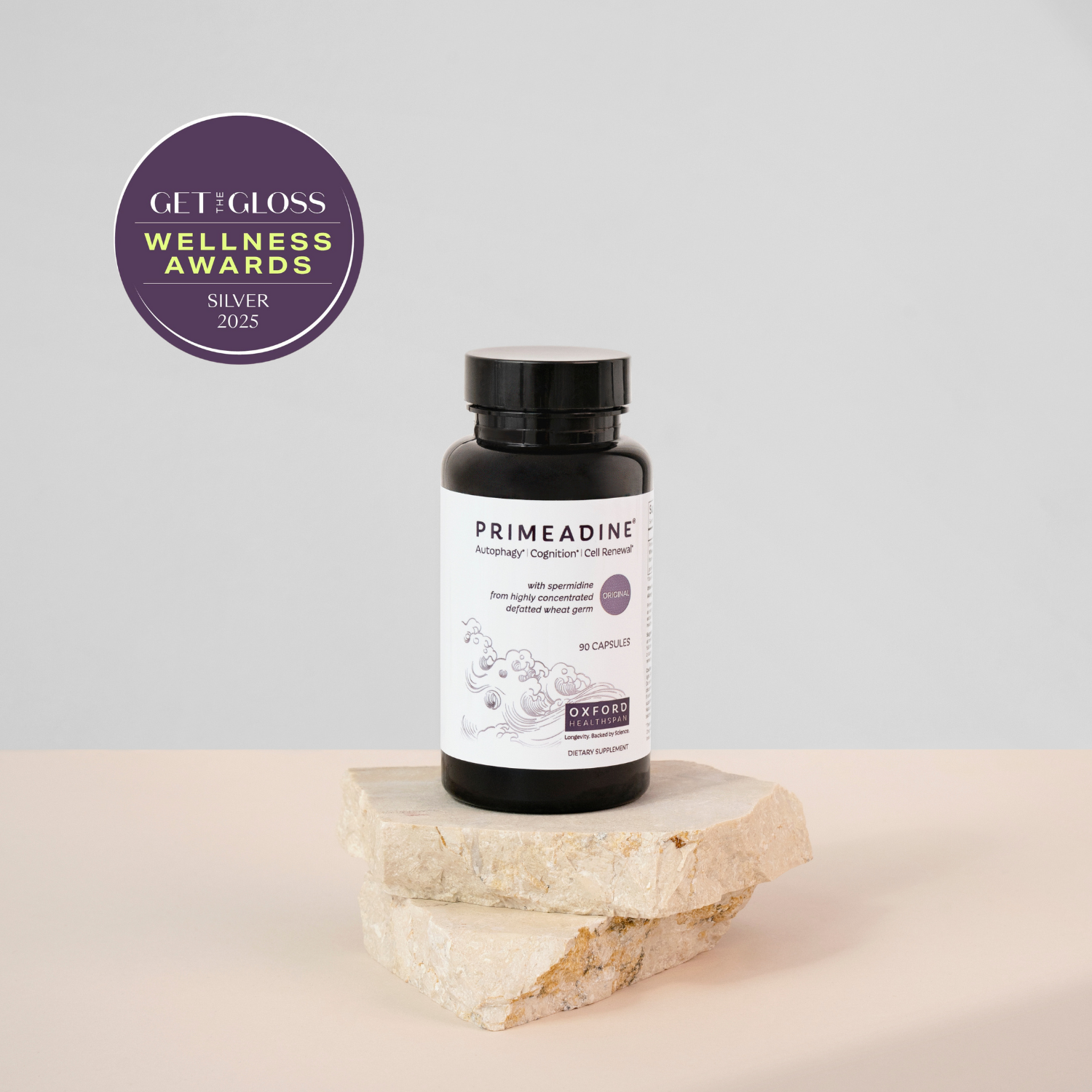
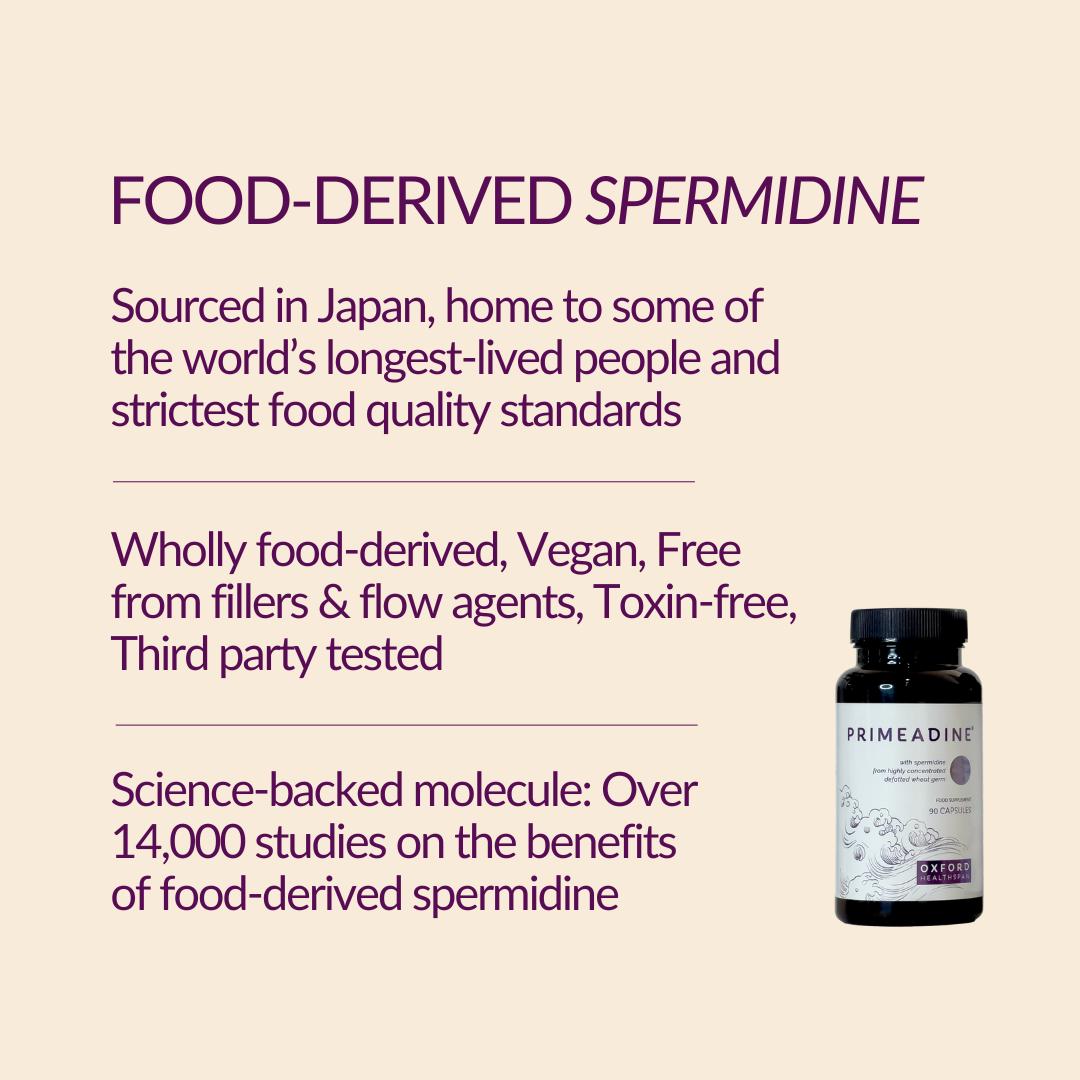


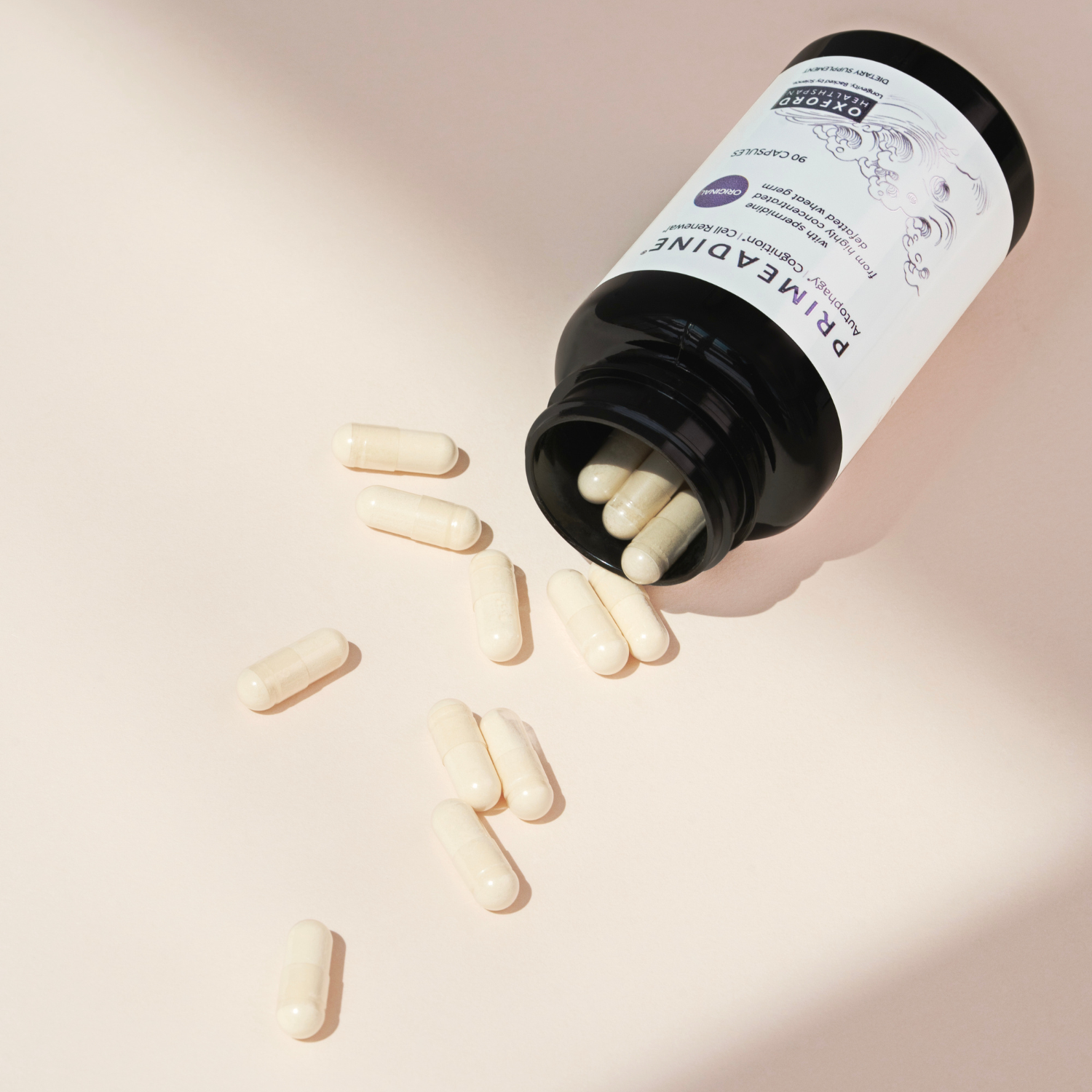
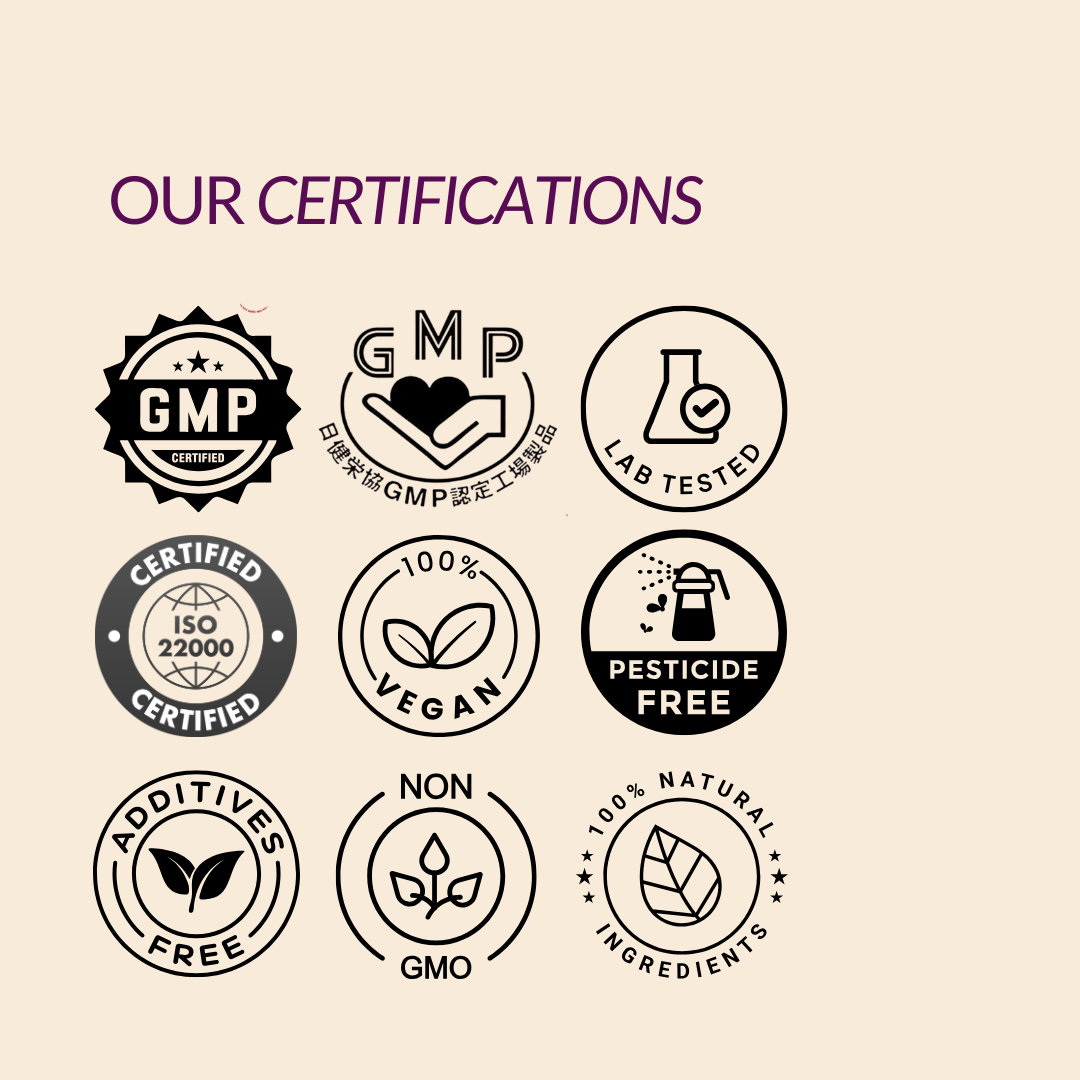
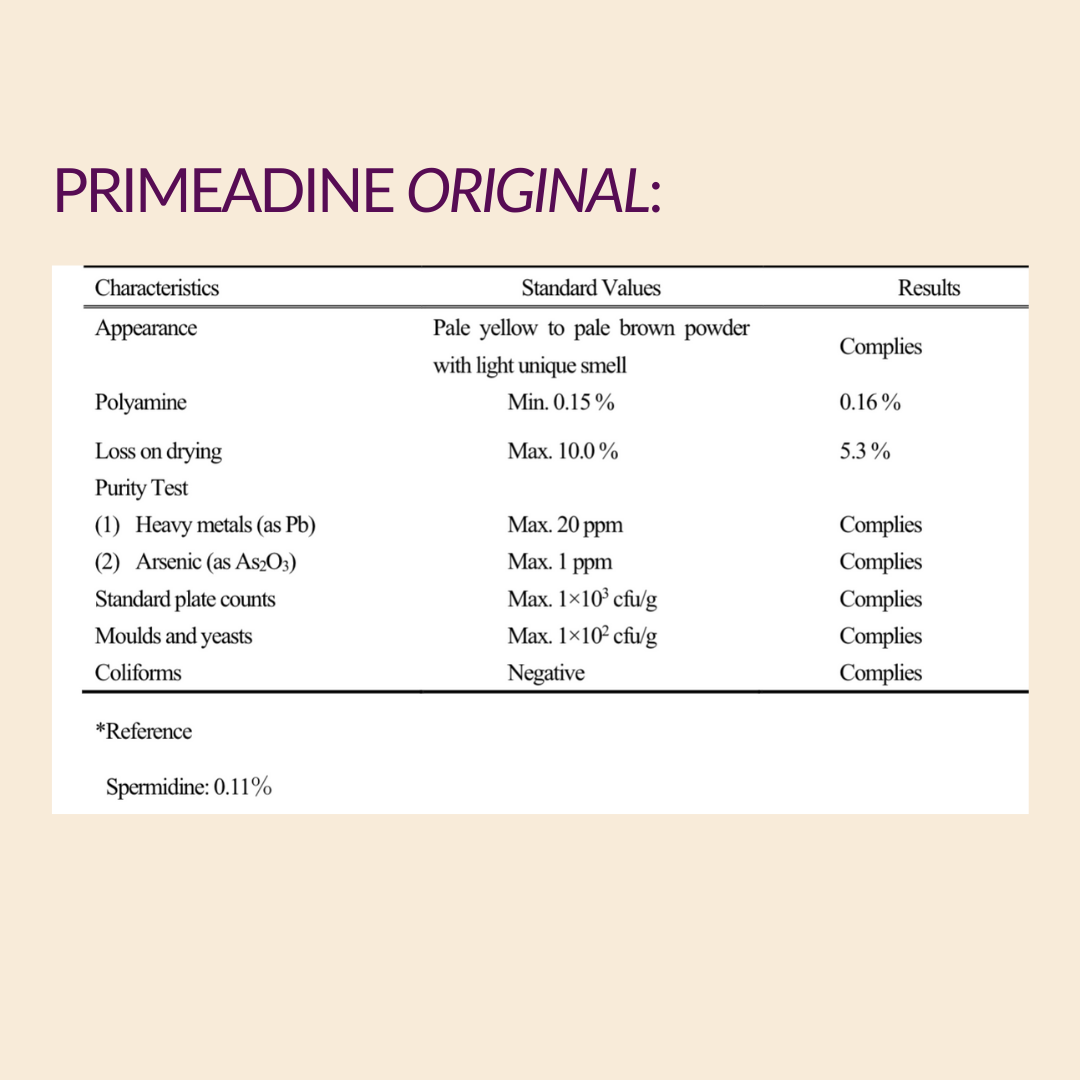
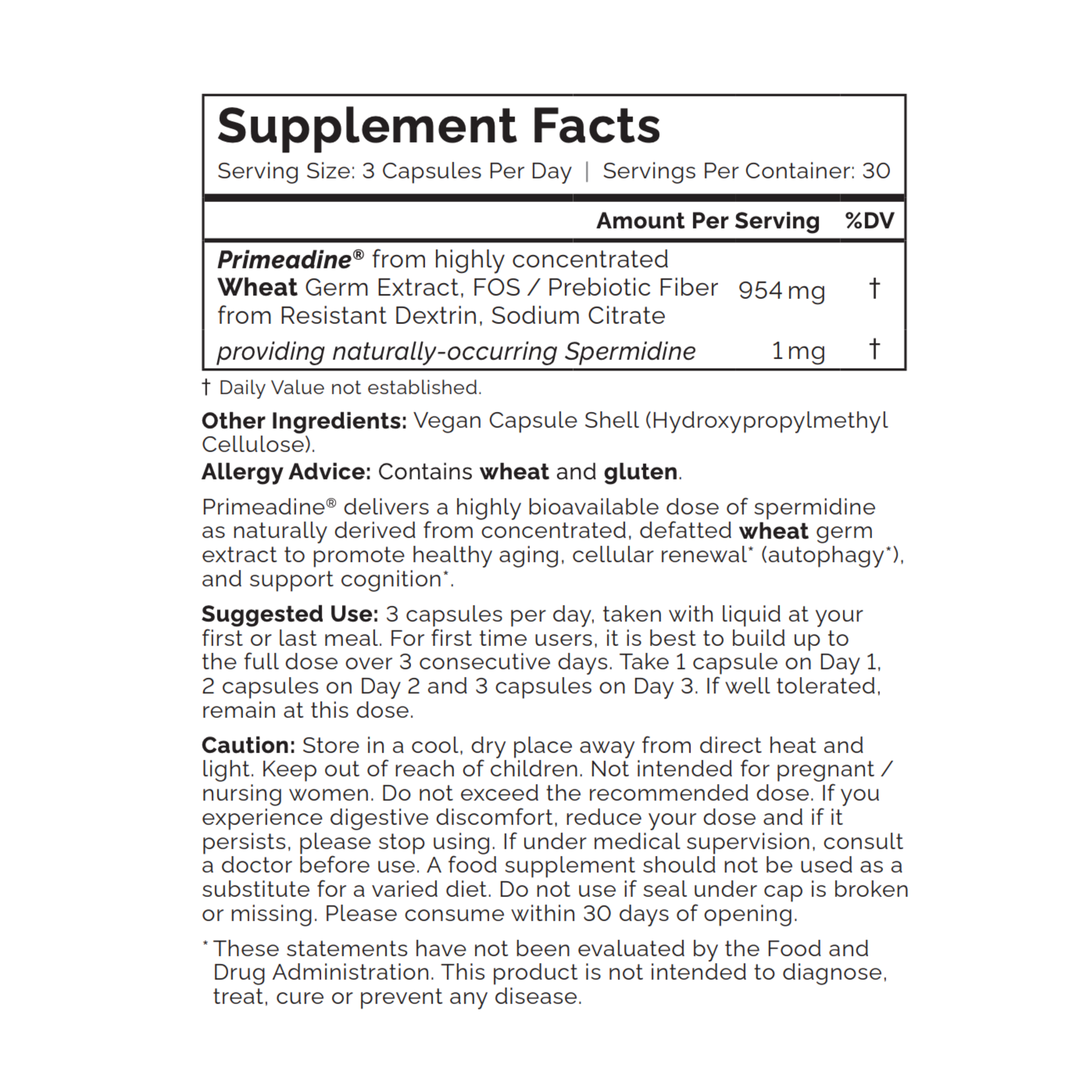
Primeadine® Original
HEALTHY AGING | CELL RENEWAL | RADIANCE
A whole-food spermidine supplement that activates autophagy — the body’s cell renewal process — to promote healthy aging and longevity. Made with Japanese wheat germ and a special prebiotic fiber that boosts natural spermidine production.
Increase your cart total to over $100 for free shipping on your order!
Description
Primeadine® Original is a premium, whole-food spermidine supplement made from concentrated, defatted Japanese wheat germ. Each dose provides 1mg of highly bioavailable spermidine plus prebiotic fibre to boost your body’s own production.
By activating autophagy – your cells’ natural renewal and clean-up system – Primeadine mimics the benefits of fasting and tackles the root causes of ageing. Think Marie Kondo for your cells.
Primeadine® Original supports:
- Healthy ageing - reduces inflammation, renews cells, and protects DNA
- Radiance - stronger hair, smoother skin, healthier nails
- Energy & focus - improved vitality, memory, and cognition
- Rest & balance - deeper sleep, circadian rhythm support, and gut–hormone balance
Ingredients
Each serving provides 1mg of plant-derived spermidine from concentrated, defatted Japanese wheat* germ extract. Defatting removes omega-6 fatty acids, reducing the risk of rancidity and inflammation.
Other ingredients:
- Prebiotic Fibre from Resistant Dextrin.
- Hypromellose (Vegan Cellulose Capsule).
- Sodium Citrate.
*Allergens: Wheat (Contains 40mg of gluten per serving). In comparison, the average slice of bread contains 1,000-2,000mg of gluten, so this is roughly the equivalent of gluten in a crumb of bread.
How to Use
Dosage: 3 capsules per day, taken with water at your first or last meal.
On day one, start with 1 capsule, on day 2, take 2 capsules, and on day 3, take 3 capsules. If well-tolerated, continue at this dose.
Who's It For
- Those seeking to improve their longevity, healthspan, and overall wellness. Like collagen, spermidine levels begin to deplete from age 26.
- Those interested in experiencing the benefits of fasting without dietary restrictions.
- May be suitable for younger individuals who have inflammatory skin conditions, gut health issues, viral overload, or have recently taken antibiotics.
Contraindications
Contains wheat germ, so it's unsuitable for those with Celiac disease or gluten intolerance. Consult your healthcare provider if unsure.
It also contains a prebiotic fibre, which may not be well-tolerated by those with SIBO (small intestinal bacterial overgrowth), IBS (irritable bowel syndrome), or that find it difficult to digest legumes.
For a gluten-free option without added prebiotic fibre, try Primeadine GF.
Allergens: Wheat and gluten.
Free From
- Additives & Processing Agents: Fillers, Flow Agents, Added Flavors
- Allergens & Dietary Concerns: Soy, Lactose, Sugar, PUFAs (polyunsaturated fatty acids)
- Contaminants: Heavy Metals, Pesticides and Herbicides (including glyphosate), Mycotoxins
Due to our natural ingredients and absence of binders or fillers, you may notice slight variations in color and density from batch to batch. This variation reflects the purity and cleanliness of our products and is no cause for concern.
Quality & Testing
- Good Manufacturing Practices (GMPs)
- ISO2200 standard, the highest in food quality control
- Sourced in Japan and Made in the USA in FDA-certified facilities
- Rigorous third party testing in Japan and the USA
- Thoroughly tested for heavy metal, contaminant, and microbiological analysis by third party, FDA-registered, ISO-certified laboratories
- Wheat germ is defatted to remove potentially rancid PUFAs (polyunsaturated fatty acids) which, if left in, can cause inflammation in the cells

This product is rated 4.8 of 5.0 stars.
It has received 166 reviews.
Activate Your New Prime of Life...
Recommended by Experts

@drolivialesslar
Celebrity Anti-Aging Doctor & Psychoneuroimmunologist
Primeadine is an exceptional quality spermidine that I use in many protocols, especially when I am trying to induce autophagy. These include such diverse protocols as those for tinnitus, post-viral syndromes, 'autoimmunity', and graying hair! I am especially pleased to have a gluten-free version to offer patients.

@theagingwellpodcast
Host, Aging Well Podcast and Prof of Exercise Science at Western Oregon University in Portland
I started Primeadine last night. Impatient as I am, I started at 3 capsules. Despite disrupted sleep, I had my best recorded REM sleep (1:35, 24%) and good restorative sleep. I am impressed! My “Biocharge” on my Helio Strap has been low. I was still “low” but significantly improved considering I went to bed at a 5 (drained)… [it] is the highest I have been in a while.

@nadineartemisofficial
Beauty Philosophist, Author & Founder of Living Libations
My renegade beauty secret for deeper sleep, stronger nails, longer lashes, fuller hair, smoother skin, and fading freckles.

@timbiohacker
Europe's Leading Biohacker & Founder of the Health Optimisation Summit
Primeadine by Oxford Healthspan is my go-to spermidine supplement. Made with rigorously tested Japan-sourced ingredients and a unique prebiotic to boost gut production, it’s unmatched in quality and effectiveness and doesn't have the nasty additional bulking agents like other brands.

@kaufmannantiaging
Longevity Doctor & Author of The Kaufmann Protocol: Why We Age and How to Stop It
There is no question that spermidine is a crucial component to any longevity program. Thankfully, Oxford Healthspan offers an unparalleled product line. The quality is unprecedented, derived from naturally-sourced materials and manufactured in Japan. As a result, the products contain not only spermidine, but related polyamines which provide additional health benefits. As a result, I highly recommend this product line to all of my patients.

@carolvorders
British TV personality & Biohacker
I’m nearly 62, and I started looking into lowering my biological age. Primeadine supplements really help with, fundamentally, what’s called autophagy, which is getting rid of rubbish in your cells and using it for energy and for cell renewal and for your brain as well. Lots of you ask about what I take and this is a key essential.

@ollisovijarvi
Pioneer of Holistic & Preventive Medicine in Finland & Medical Doctor & CEO of Biohacking Center
My wife has been taking it for six months and I think she looks younger and her hair growth has come back after pregnancy, and nails, and all kinds of things that are a reflection of good vitality.

@dr.stephanie.estima
Women’s Health Expert & Author of “The Betty Body”
My hair was starting to go from gray back to […] dark brown. It was gray, and now it’s back to its original color. When I think about spermidine as a whole, the way I am viewing it is as a way to reduce systemic inflammation.
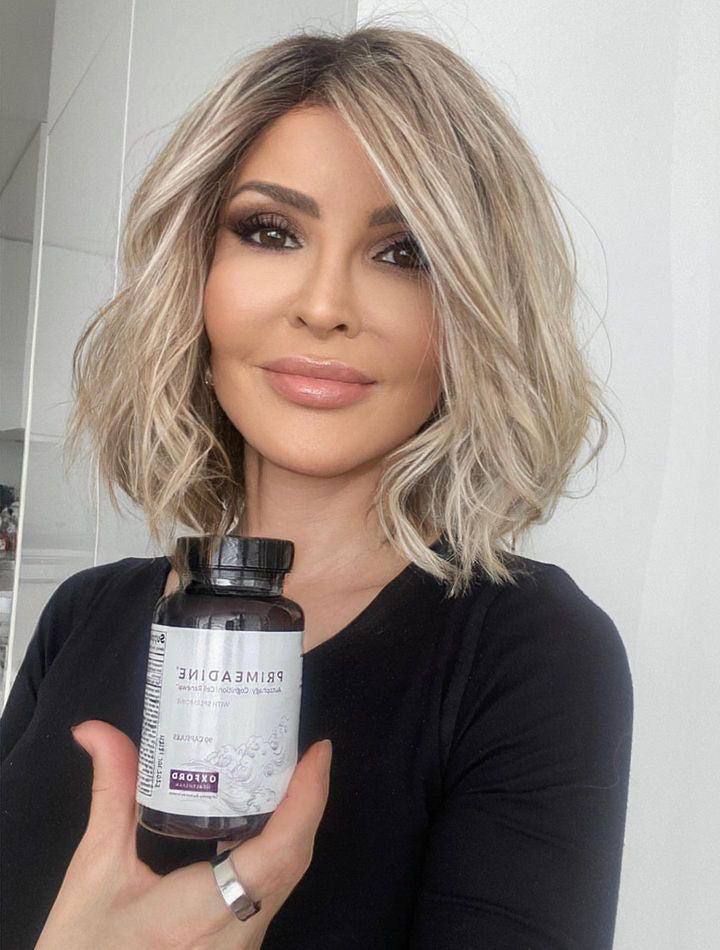
@magdalenas_secrets
Biohacker & Anti-Aging Entrepreneur
I’ve noticed (via the Oura ring app) my deep and REM sleep improved enormously! My nails are so firm and my skin is even more beautiful and glowing. If you want to improve your health and rejuvenate your body, I suggest following an anti-aging protocol with Primeadine.

@lukestorey
Writer, Meditation & Metaphysics Teacher & Lifestyle Design Expert
The best spermidine supplement on the market.

@nathalieniddam
Certified Holistic Health Coach & Biohacker
Primeadine upregulates autophagy and mitophagy, helps the immune system to rejuvenate plus it protects DNA and supports deep sleep, hair skin, and nails. It’s a staple in my supplement stack!
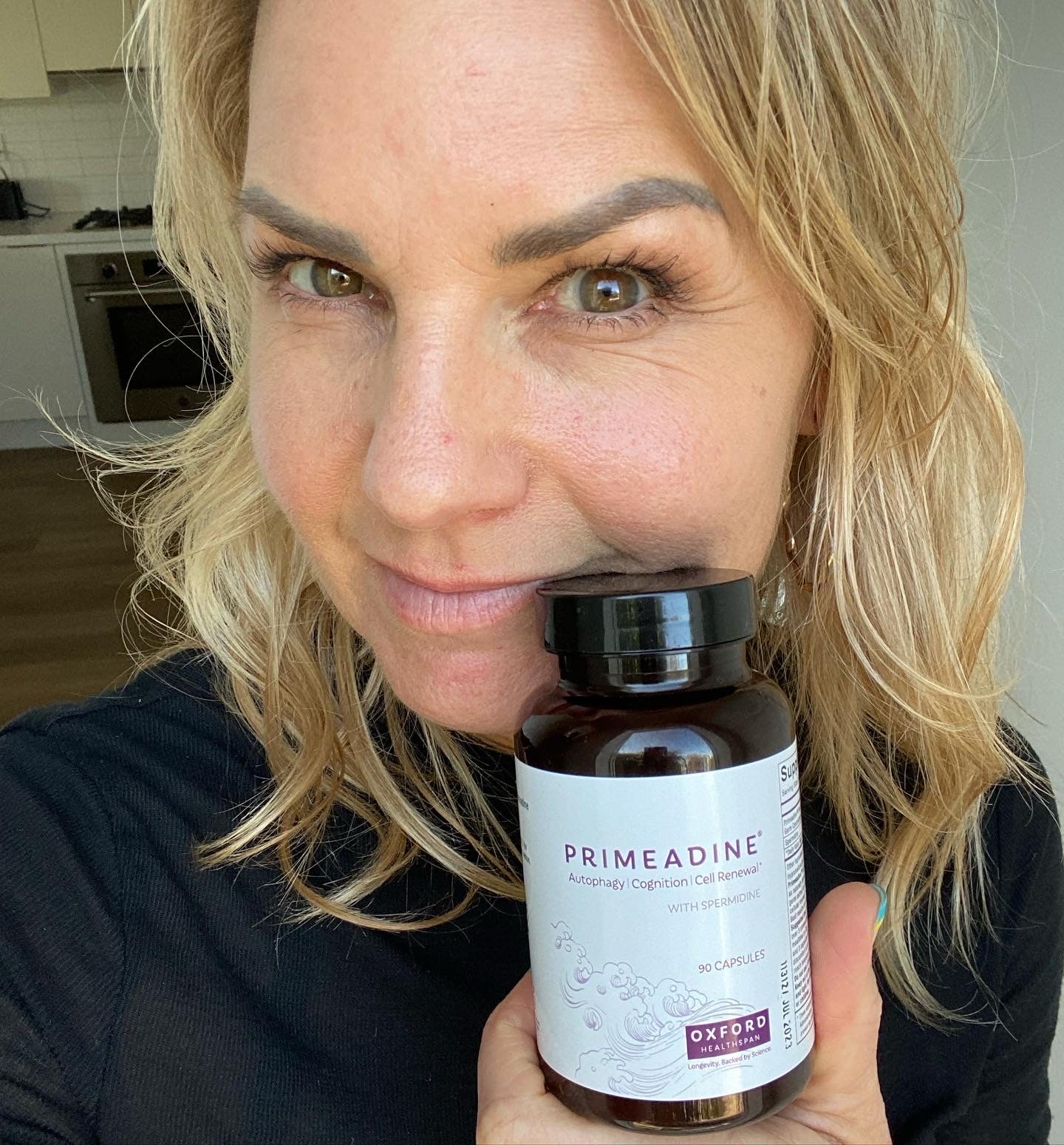
@hackmyage
Gerontologist, Biohacker & Sports Nutrition Coach
I’ve been taking Primeadine spermidine on and off for about 3 years. Every time I go on it, my sleep or recovery scores on my tracking devices go up. And when I go off of it, after several weeks they start to drop.

@silverliberation
Pro-Aging Influencer
One of my non-negotiable supplements for better skin, hair, lash growth, and autophagy. And best of all - improved sleep.
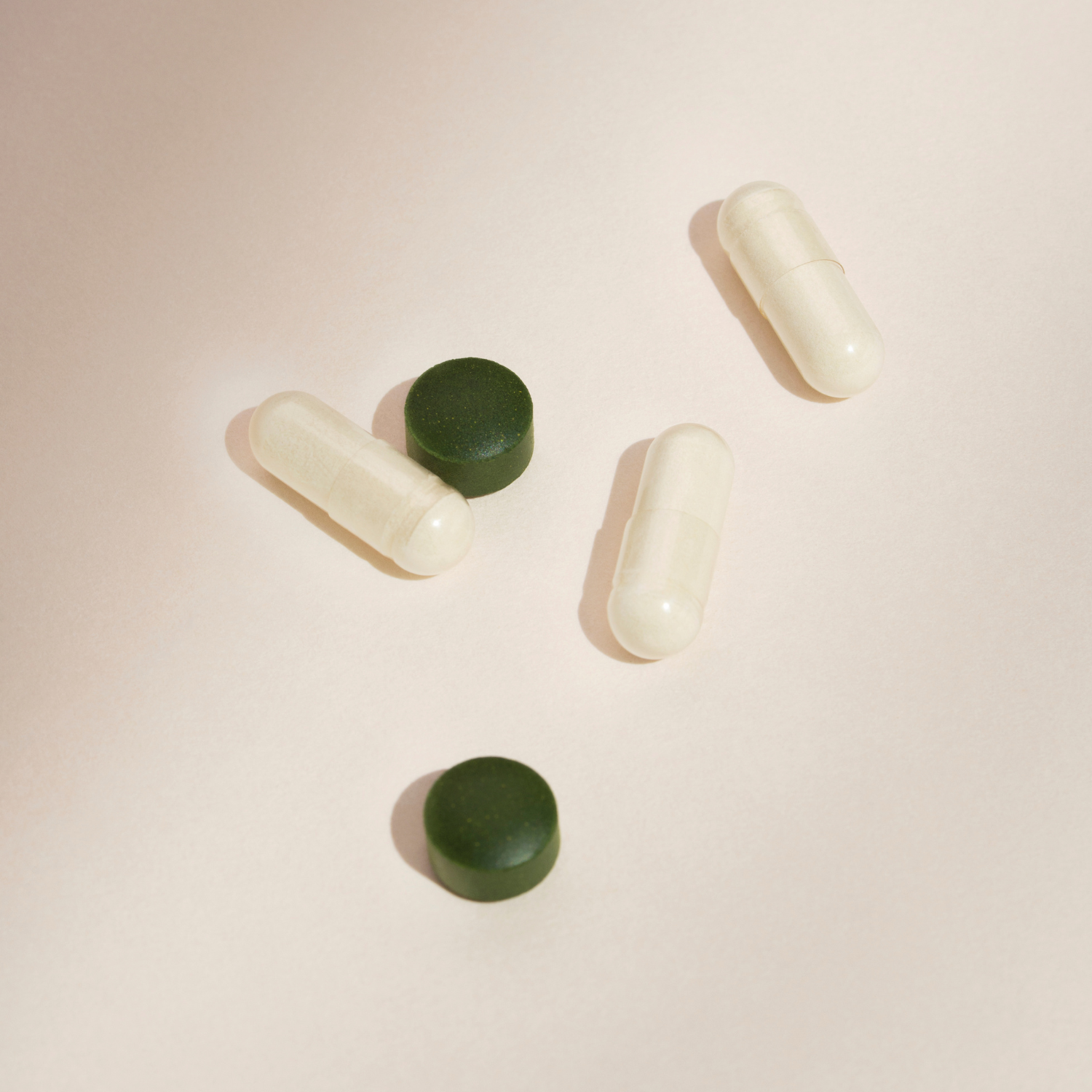
What is Spermidine?
Primeadine’s key ingredient, whole-food spermidine, is a natural compound shown to support healthy ageing. In youth, most is made by the body and gut, but levels decline with age – making supplementation increasingly important.
Learn moreLearn More on Our Blog

Why Defatting Wheat Germ is Essential for High Quality Spermidine Supplements
At Oxford Healthspan, we often talk about the purity and stability of the wheat germ extract used in Primeadine®. One of the most important steps in creating this high-quality extract is defatting,...
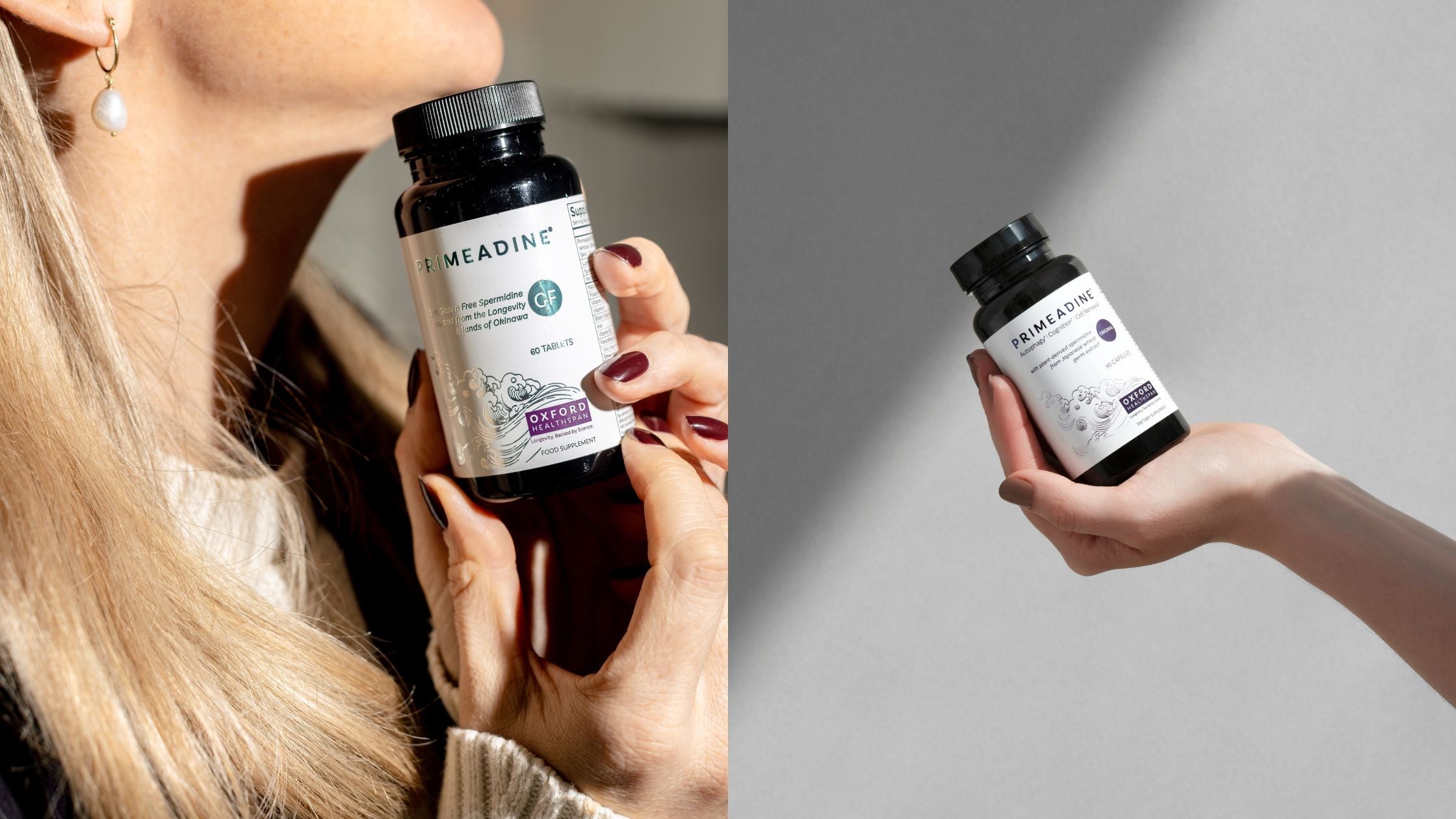
How Will I Know if Primeadine® Is Working?
When you start taking Primeadine®, it’s natural to wonder what to look out for and when you’ll begin to feel, and see, a difference. Because Primeadine supports your body’s own renewal process at a...

Seasonal Longevity Foods for Winter: A Complete Guide
As the days grow shorter and temperatures drop, we often start to crave warm, comforting foods. This is our body’s way of telling us it’s time to boost immune support, nourish our skin, and strengt...




